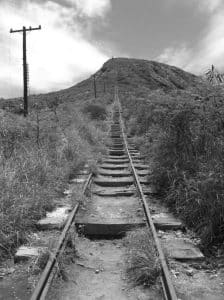Introduction to the Mpanda Line Project
The Mpanda Line is an ambitious railway project that aims to extend Tanzania’s growing rail network deeper into the western regions of the country. This strategic infrastructure development is poised to transform the economic landscape, enhancing connectivity, trade, and development across the nation. As you embark on this journey with us, you’ll discover the significance of the Mpanda Line and its far-reaching implications for Tanzania’s future.
Importance of Expanding Tanzania’s Railway Reach

Tanzania’s railway network has long been recognized as a crucial component of the country’s transportation infrastructure, facilitating the movement of goods, people, and resources across vast distances. However, until now, the reach of this network has been limited, primarily serving the central and eastern regions. The Mpanda Line project represents a pivotal step in addressing this imbalance, extending the railway’s influence to the western provinces and unlocking new opportunities for economic growth and social progress.
Overview of the Mpanda Line Railway Route
The Mpanda Line is a 336-kilometer railway that will connect the town of Mpanda in the Katavi region to the existing Tanzania Railways Limited (TRL) network. This strategic route will traverse through the regions of Tabora, Katavi, and Kigoma, linking the western areas to the central transportation hubs and ultimately enhancing the country’s overall connectivity. The line’s design incorporates modern standards, ensuring efficient and reliable service for both passenger and freight transport.
Benefits of the Mpanda Line for Tanzania’s Economy
The Mpanda Line project promises to deliver a multitude of economic benefits for Tanzania. By improving access to markets, reducing transportation costs, and fostering regional integration, the railway will drive the growth of industries, agriculture, and trade in the western regions. This, in turn, will create new employment opportunities, increase tax revenues, and contribute to the overall prosperity of the nation. Additionally, the Mpanda Line will facilitate the movement of natural resources, such as minerals and timber, further bolstering Tanzania’s economic development.
Challenges and Considerations in Constructing the Mpanda Line
The construction of the Mpanda Line is not without its challenges. The terrain in the western regions of Tanzania can be rugged and mountainous, requiring extensive engineering and infrastructure development to overcome natural obstacles. Additionally, the project must navigate complex land acquisition processes, environmental impact assessments, and the coordination of various stakeholders to ensure a smooth and sustainable implementation. Careful planning and risk mitigation strategies will be crucial in addressing these challenges and delivering the Mpanda Line on time and within budget.
Progress and Updates on the Mpanda Line Project
The Mpanda Line project is currently in the advanced stages of planning and construction. The Tanzanian government, in partnership with various international and local stakeholders, has made significant strides in securing funding, finalizing the design, and initiating the construction of the railway. Regular progress updates and milestones are being shared with the public, ensuring transparency and keeping the community informed about the project’s development.
Impacts of the Mpanda Line on Local Communities and Industries
The Mpanda Line will have a profound impact on the local communities and industries along its route. Improved connectivity will open up new markets for agricultural products, enabling farmers to reach a wider customer base and fetch better prices for their crops. Additionally, the railway will facilitate the transportation of natural resources, such as minerals and timber, boosting the local extractive industries. Furthermore, the construction and operation of the Mpanda Line will create employment opportunities, stimulating economic activity and improving the overall standard of living in the affected regions.
Future Prospects and Potential of the Mpanda Line
Looking ahead, the Mpanda Line holds immense potential for Tanzania’s future development. As the country continues to modernize its transportation infrastructure, this railway project will serve as a vital link, connecting the western regions to the rest of the national network. The increased mobility and accessibility will pave the way for further investments, the establishment of new industries, and the strengthening of existing ones. Moreover, the Mpanda Line’s integration with other planned railway projects, such as the Central Line and the Standard Gauge Railway, will amplify its impact, fostering regional and international trade and cooperation.
Comparison with Other Railway Projects in Tanzania
The Mpanda Line project is part of a broader initiative to expand and modernize Tanzania’s railway network. While it shares similarities with other ongoing railway projects, such as the Central Line and the Standard Gauge Railway, the Mpanda Line stands out for its strategic importance in reaching the underserved western regions of the country. Each of these railway initiatives plays a unique role in Tanzania’s transportation infrastructure, collectively contributing to the nation’s economic transformation and integration.
Conclusion: The Significance of the Mpanda Line for Tanzania’s Development

The Mpanda Line project represents a critical milestone in Tanzania’s pursuit of sustainable development and economic growth. By extending the country’s railway reach into the western regions, the Mpanda Line will unlock new opportunities, foster regional integration, and drive the transformation of local communities and industries. As this ambitious project progresses, it will serve as a testament to Tanzania’s commitment to building a resilient and interconnected transportation network that supports the nation’s long-term prosperity.
For more articles related to Railway and train travel Tanzania, click here!

































